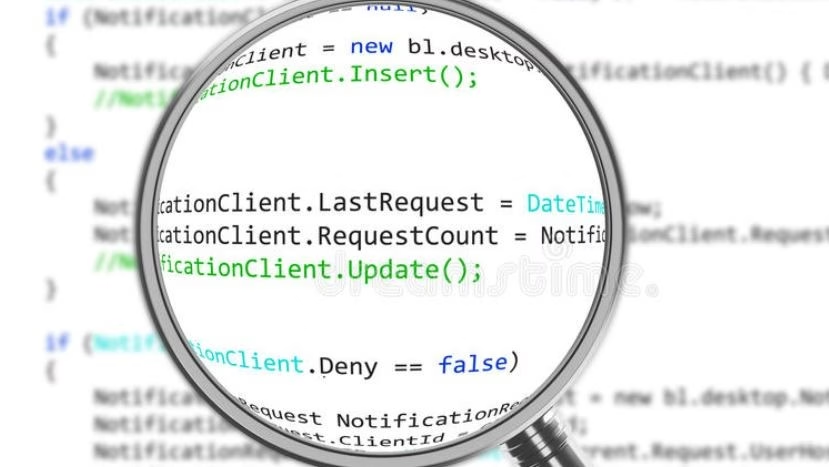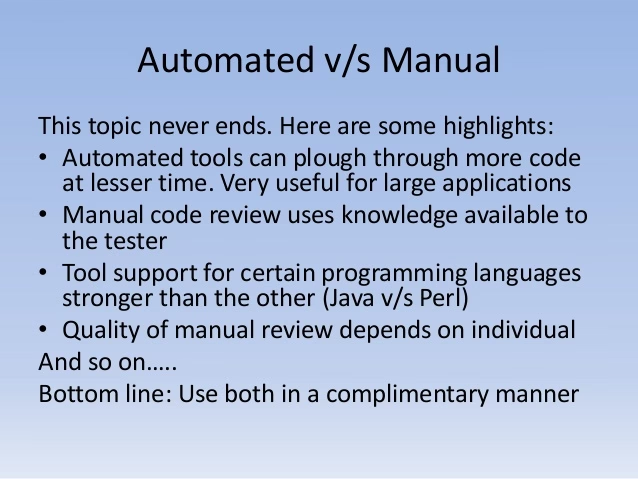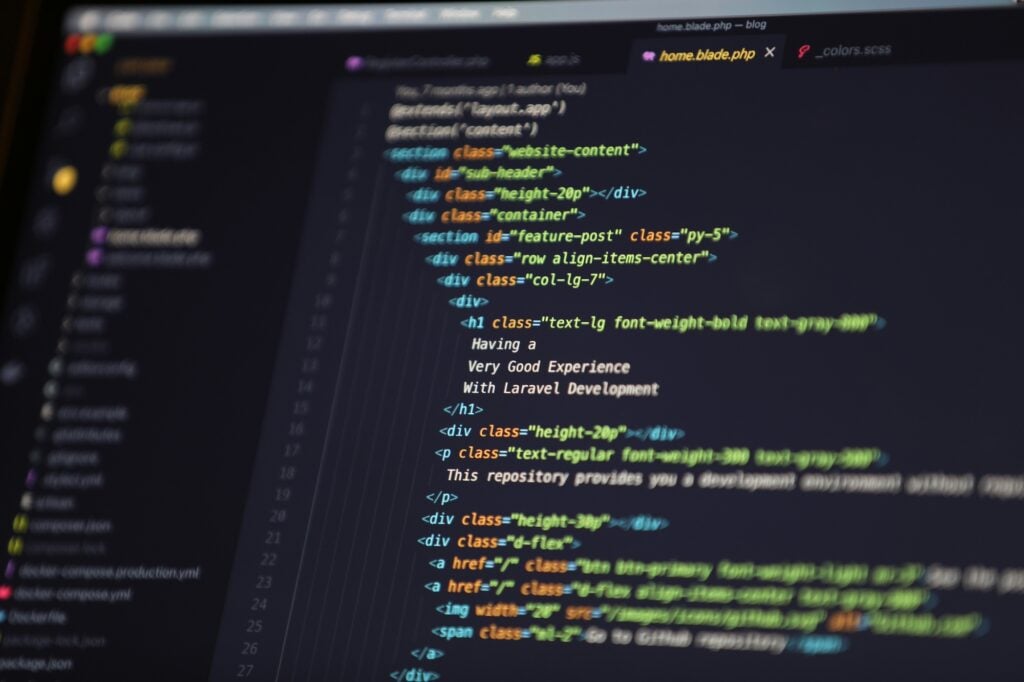
How To Find The Best Code Review Companies?
Want to know how to find the best code review companies? What is the best practice for code review? Is there any tool for code review?
Below I will share some useful insights and answer the most popular and exciting questions about code review tools that will help you find the best code review companies, so keep reading!
What is a Code Review?
A code review is a collaborative process in software development when developers review and examine the quality of other developers' code.
In this article
- Software code review process: A brief overview
- The importance of code review
- Automated vs manual code reviews
- How do you find the best software code review companies?
- Frequently Asked Questions on code review companies
Bad code can destroy even the most innovative software applications. This is why you need to undertake a thorough code review to ensure your app is a success.
Other than the huge financial rewards that await companies that launch good apps, innovating in this industry also gives you the chance to improve many people's lives. However, a good app depends on the code quality.
Software code review process: A brief overview

It’s time for a brief recap of the software code review process. Why are we even talking about code reviews? Well, it’s because of the less-than-optimal success rate of software development projects.
A report by the “The Standish Group” states that 31.1% of software projects are likely to get canceled at some point during the development process, while 52.7% of them will see a budget overrun. You can read more about the failure rate of corporate custom software projects.
There are many reasons for this high failure rate, including code quality issues. Code base quality issues impact many aspects of a software application, e.g., functionality, performance, reliability, availability, and maintainability.
Software development teams utilize several techniques to improve the quality of their source code. These techniques fall into two categories, namely, verification and validation. The verification process includes checking requirements, design, test plans, and test cases and conducting a peer code review.
On the other hand, the validation process includes dynamic mechanisms like testing the code. Please keep in mind that there is a difference between verification and validation.
This brings us to code review, which is a systematic activity of reviewing another developer’s code. Code reviews are typically formal activities where experienced developers go through code written by a developer or a development team. You can do pre-commit and post-commit code reviews.
You could use code review tools, or you might review code entirely manually. The key objective of it remains the same, which is to find errors in the code before it reaches the end-user environment.
The importance of code review
Why is a code review important? A peer code review offers many advantages to a software development team, e.g.:
- Code review sessions help to identify obvious logical errors in the source code, in effect, ensuring it is good code.
- A code review exercise can find out whether the code is doing what the requirements and design mention.
- Code reviewers can identify whether the code conforms to the organizational standards and guidelines.
- Structured code review sessions can indicate whether the software has adequate maintainability.
- With the help of a code review, a software development team can identify whether it has created enough test cases.
There are also longer-term advantages that an organization can get from code reviews:
- A software development organization that has institutionalized code reviews improves its estimation models and tools.
- Since code reviews tend to find bugs earlier, the organization has a better chance of adhering to the project schedule.
- Code reviews reduce the stress on the team.
- Organizations that have implemented code review processes see better sharing of knowledge. Therefore, they have more competent developers in the long run.
When it’s about reviews, always start early!
Now that you understand the values of a code review, it’s time to remember that it shouldn’t be the first iteration of reviews in your project. When working on a key software development project, your focus should be on finding defects early enough in the software development lifecycle (SDLC).
Detecting defects earlier helps you to minimize rework, which helps you to keep the costs under control. Therefore, even before you embark on code reviews, put in place a process to cover the following:
- Requirements reviews;
- Design reviews;
- Test plan and test case reviews.
Overall, software reviews are highly important and should take place earlier than code reviews.
Automated vs manual code reviews

While a formal code review was entirely a manual activity in the past, in recent decades there are popular code review tools available to automate parts of it.
As I have earlier explained in our guide on how to build a code review solution, automated code review tools can deliver quite a few advantages, e.g.:
- Code review tools make it quicker to catch defects that we can consider as “low-hanging fruits”. A few examples of such defects are SQL injection and cross-site scripting (XSS).
- With code review tools, you can schedule code reviews or run them on-demand.
However, automated code review tools can do only so much and not everything. There’s no real substitute for experienced reviewers conducting a structured code review. Such manual reviews help in the following ways:
- You can review the various logical paths in the code to detect errors; moreover, you can identify architectural or design flaws. This is a very detailed code review, and even the best code review tools can hardly do this.
- Manual code reviews help you to identify application security vulnerabilities like authorization, authentication, data validation, etc.
Most successful software development organizations employ a combination of automated tools and experienced reviewers for code reviews. You can read more about best practices for secure code review.
How do you find the best software code review companies?
Now that you have sufficient clarity about why you should have experienced code reviewers in your organization, I will explain how you can find them.

Best code review companies meet the following criteria:
1. Competent code reviewers are competent developers first
You see, software development is very different from the manufacturing industry. There is a considerable degree of abstraction in a software development process; therefore, only someone with significant hands-on experience with coding can understand what can go wrong.
If you are planning to onboard a competent code reviewer, then you should look for a competent software developer first in them. The following metrics are important:
- Competent software developers need high professional ethics, and this needs no explanation!
- Decision-making capabilities are important for software developers as well as reviewers.
- Competent code reviewers need to have a clear understanding of computer science fundamentals, just as developers do.
- The knowledge of modern programming languages is important. The programming language could vary depending on your project, e.g., Node.js for web app development, Kotlin/Java for native Android development, Swift for native iOS development, Python/Julia for AI/ML programming, etc.
- Effective code reviewers need to understand SDLC well.
- The knowledge of IT architecture is important to programmers and code reviewers alike.
- Competent code reviewers need to know sufficiently about cloud computing platforms and popular development tools.
- For effective code reviewers as well as developers, the knowledge of coding scalable apps is important.
- An openness to collaborate is important to developers as well as code reviewers.
You can read our article on finding a good software developer for more insights.
2. Smart code reviewers understand software defect prevention well
A code review exercise needs to be a structured one to be successful, and it should tie into the software quality management practices in your organization.
It’s not just about one code review session, rather, you need to implement a repeatable process of code review for each new feature or completed task using static analysis, automated code testing, etc. to ensure the process is speedy and comprehensive.
This enables you to reap the benefits of code reviews across all of your software development projects.
Code reviewers should have a thorough understanding of software defect prevention processes and practices for this. This understanding must reflect in their practices when they undertake code reviews, e.g.:
- Code reviewers must make note of versions of code and review code from the formally version-controlled code repository of the project.
- Reviewers need to use the latest organizational coding guidelines and review checklists.
- When they find defects, they need to document them diligently.
- While documenting the defects, reviewers should identify the appropriate attributes of the defect, e.g., category, origin, severity, etc.
- Software defect prevention requires your organization to use techniques like the “Root Cause Analysis” (RCA), and you will need to implement various preventive actions. Code reviewers must write their review reports with sufficient details so that you can use such techniques.
- Code reviewers must document actionable insights so that your organization can use them to improve its defect-prevention processes and practices. You don’t want the code review reports to contain vague information!
3. Expert peer code reviewers must be good leaders of people
Let’s remove one confusion first. We aren’t talking about finding project managers here who will double up as code reviewers. It’s the leadership competencies that we are talking about here.
The success of a smart code reviewer isn’t confined to only finding all hidden defects in the code he/she has reviewed and reporting them well. The experience should help the developers whose code the reviewer inspected.
As a result of the code review session, these developers should learn something valuable. This learning could cover programming language-related matters, good coding practices, etc.
Developers should be able to use this knowledge to improve their work in the future, which delivers sustained value to your organization.
Such empowerment is possible when you have a good leader! Good leadership on the part of the code reviewer can bring this positive change in the developers whose code he/she has reviewed.
Code reviewers can’t just go about the tasks of finding defects in the code and recording them mechanically. They need to explain the code issues to the developers in an effective manner.
Effectively, this amounts to code reviewers giving clear feedback to developers. Reviewers need to give this feedback in an honest and caring manner, which fosters accountability. The objective of a code review process isn’t to find faults; rather, such peer review sessions intend to drive improvement.
Developers whose piece of code is being reviewed should be able to trust the reviewer, and this requires the review comments to be objective. Reviewers should give review comments as clearly as possible so that the comments help the programmers to understand where they need to do better. This is the only way to ensure high-quality code and an overall developer and process improvement in the project development process.
Giving feedback in such an honest and caring manner is key to successful leadership, and you should onboard reviewers that have this competency.
4. Competent code reviewers need in-depth knowledge about application security risks
You will need to mitigate application security risks proactively. Some industries are subject to stringent data security regulations since they handle sensitive information. If you are developing an app for such an industry, the importance of application security increases manifold.
Application security vulnerabilities can’t be unearthed by testing alone, and code review is very important here. While some code review tools can identify a few such vulnerabilities, there’s no substitute for manual code reviews by experienced team members.
Code reviewers, you onboard, should have in-depth knowledge about top application security risks. These vulnerabilities are as follows:
- Injection;
- Broken authentication;
- Sensitive data exposure;
- XML external entities (XXE);
- Broken access control;
- Security misconfiguration;
- Cross-site scripting (XSS);
- Insecure deserialization;
- Using components with known vulnerabilities;
- Insufficient logging and monitoring;
- API Vulnerabilities.
You need code review companies that know how to look for such vulnerabilities in the source code. You can refer to the report that describes code security flaws well.
Looking for competent code review companies for your software development projects?
While testing is important, you can’t depend on that alone to unearth bugs in your source code. You need a robust code review process for your project, and this requires expert code reviewers.
It’s not easy to find competent code reviewers, and you should work with software development companies with a robust track record.
We at DevTeam.Space can help you with our code review services to ensure you have better code. Our software engineering record is second to none, and we have refined our code review best practices.
To find out how good we are, fill out a project specification form so we can contact you in person to answer any questions that you might have.
For more information on code review checklists, read our guide.
Frequently Asked Questions on Code Review Companies
This is a systematic code review process to check the source code's integrity and to make sure it is free from errors and bugs. Such reviews should be carried out by experienced code reviewers such as those at DevTeam.Space.
Phabricator Differential is widely seen as one of the best code review tools. An open-source tool, it is free to use and can detect a wide range of code issues. Smartbear is another excellent code review tool.
Everything from small errors that cause performance lag to huge security errors that leave an application open to attack by hackers can be detected by a comprehensive code review by code review companies. In most cases, simple code changes are needed to prevent these defects.
Related Code Review Articles
Learn more about code review and code review best practices from our expert articles:


